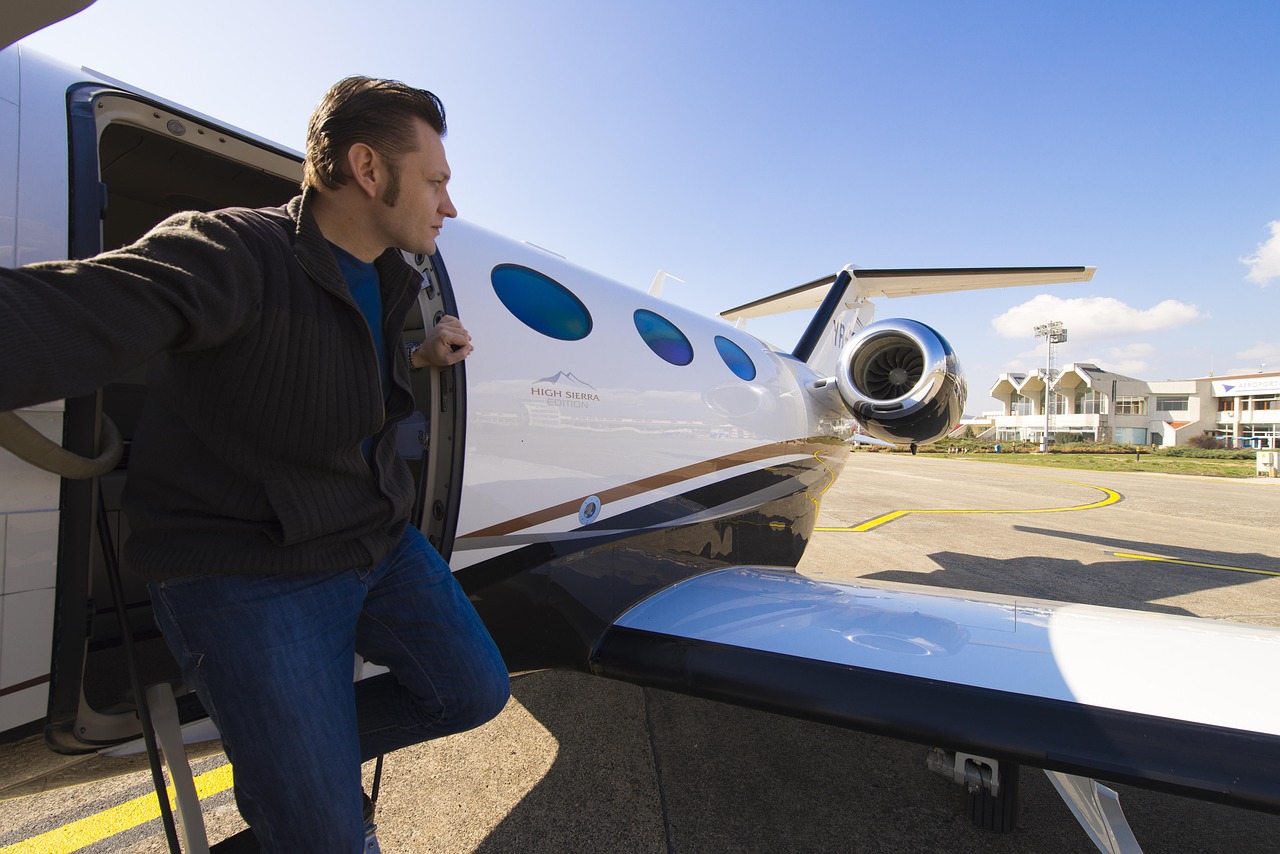
The world of aviation has undergone vital transformations over the past century, with private jets emerging as a outstanding image of luxury, comfort, and effectivity. Once the exclusive area of the elite, private jets have evolved from simple aircraft into subtle flying machines that cater to a diverse clientele, starting from enterprise executives to celebrities. This text explores the evolution of private jets, their affect on the aviation trade, and the broader implications for society and the environment.

The idea of private aviation could be traced back to the early twentieth century when the first business flights started to take off. Nonetheless, it wasn't until the 1960s that the private jet market truly started to flourish. The introduction of the Learjet 23 in 1963 marked a pivotal moment in aviation historical past, as it provided a fast, environment friendly, and comparatively inexpensive possibility for private travel. This aircraft set the stage for a new period of enterprise aviation, where time-saving and adaptability became paramount for corporate executives and high-net-value people.
As the demand for private jet travel grew, manufacturers responded by growing a wide range of aircraft tailor-made to different wants. The 1970s and 1980s noticed the emergence of iconic models such because the Gulfstream II and the Bombardier Challenger, which mixed pace, luxurious, and advanced know-how. These jets not only catered to business travelers but also attracted a brand new class of affluent people seeking privateness and consolation. The rise of the web and globalization further fueled the demand for private aviation, as companies expanded their operations across borders, necessitating efficient travel options.
In the twenty first century, private jets have turn into more accessible than ever before. The arrival of fractional possession programs and jet card providers has democratized private aviation, allowing individuals and companies to get pleasure from the advantages of private travel without the high costs related to outright ownership. Companies like NetJets and Flexjet have pioneered these models, enabling clients to purchase shares in a fleet of aircraft, thereby decreasing the financial burden while still offering the luxurious and convenience of private flying.
The impact of private jets on the aviation industry is profound. They have created a distinct segment market that complements commercial airways, offering providers that cater to a particular clientele. Private aviation has additionally spurred innovation throughout the trade, driving advancements in aircraft design, security, and expertise. Trendy private jets are outfitted with state-of-the-art navigation programs, enhanced security options, and luxurious interiors that rival five-star accommodations. The mixing of sustainable aviation fuel (SAF) and electric propulsion methods can also be on the rise, as manufacturers and operators seek to reduce the environmental impact of flying.
Nonetheless, the rise of private jets has not come with out controversy. Critics often point to the environmental implications of private aviation, highlighting the significant carbon footprint associated with private flying in comparison with industrial travel. For more info about Privatejetscharter.review look into our webpage. In accordance to varied studies, private jets emit substantially more greenhouse gases per passenger than business airlines, elevating concerns about sustainability in an period the place climate change is a urgent international issue. In response, the business is more and more focusing on sustainability initiatives, resembling investing in greener technologies and selling carbon offset packages to mitigate their environmental impact.
Furthermore, the perception of private jets as symbols of wealth and privilege has led to societal scrutiny. During financial downturns or crises, such as the COVID-19 pandemic, the sight of private jets taking off whereas many confronted hardships sparked public outrage. This has prompted discussions concerning the ethics of private aviation and its role in a world where inequality continues to grow. Because of this, some private jet companies are working to rebrand their companies, emphasizing their contributions to native economies and the job market, in addition to their commitment to sustainability.
In addition to their financial and environmental implications, private jets have additionally remodeled the way in which we think about travel. The comfort of flying privately permits people to bypass crowded airports, long security strains, and rigid schedules. This flexibility is particularly appealing to business travelers who require fast access to distant areas or wish to maximise productiveness by conducting meetings en route. The ability to land at smaller airports closer to final destinations further enhances the appeal of private aviation, making it a sensible choice for time-sensitive travel.
The rise of expertise has also performed a vital position within the evolution of private jets. The combination of mobile applications and online booking platforms has streamlined the strategy of chartering flights, permitting users to match costs, e-book flights, and manage their itineraries with ease. Moreover, advancements in in-flight connectivity have reworked the flying expertise, enabling passengers to remain productive or entertained whereas in the air. Excessive-speed internet, video conferencing capabilities, and entertainment systems have made private jets a viable choice for both business and leisure travel.
Trying forward, the future of private aviation seems promising, with ongoing improvements and a growing focus on sustainability. The development of electric and hybrid-electric aircraft holds the potential to revolutionize the business, offering a cleaner different to traditional jet gasoline. Moreover, developments in autonomous flight technology could reshape the way we think about piloting, potentially reducing operational prices and growing safety.
In conclusion, private jets have come a long way since their inception, evolving right into a multifaceted industry that caters to a various clientele. Whereas they provide unparalleled convenience and luxury, they also pose important challenges in terms of environmental affect and societal perceptions. As the trade continues to adapt to changing demands and expectations, the steadiness between luxury travel and sustainability will probably be crucial in shaping the way forward for private aviation. As we navigate this complicated panorama, it is important to recognize the role of private jets not only as symbols of wealth but also as contributors to the broader aviation ecosystem and the global economy.
